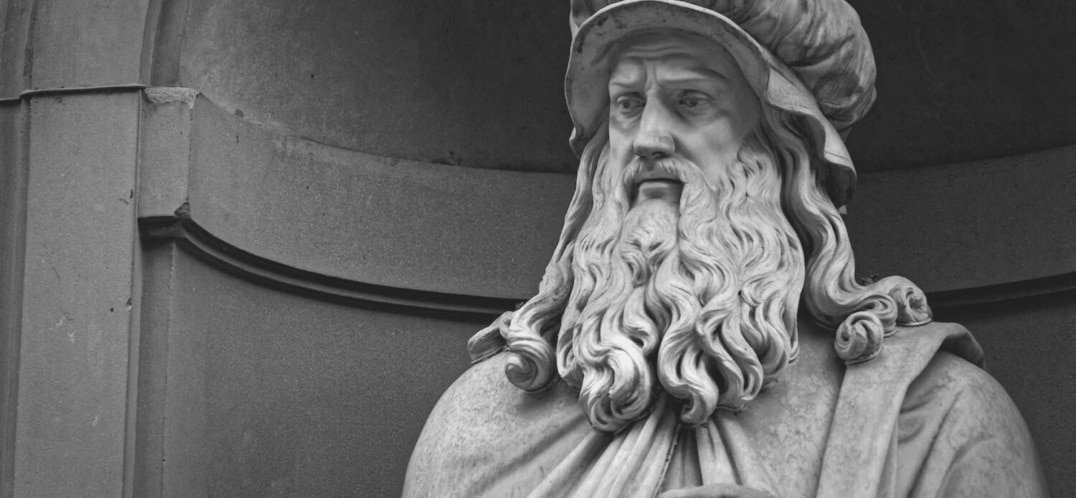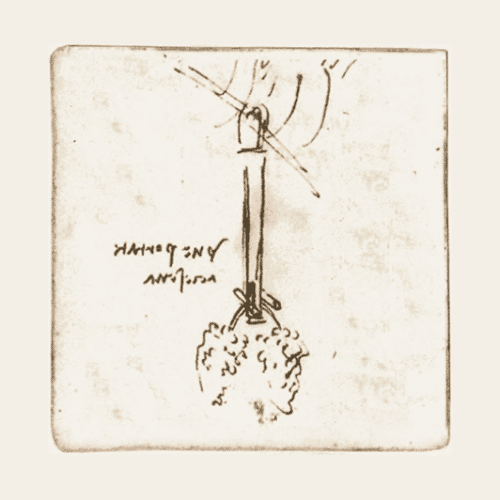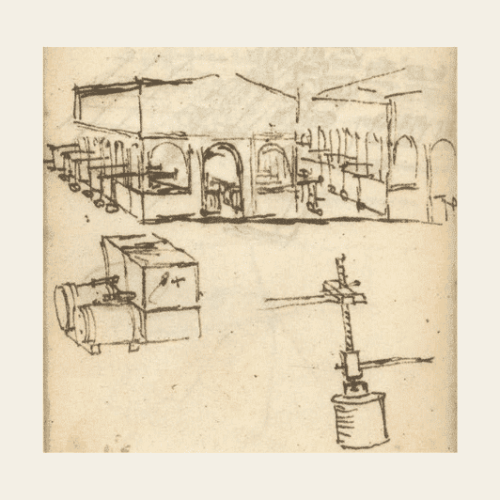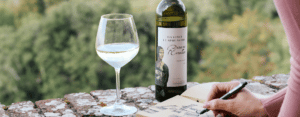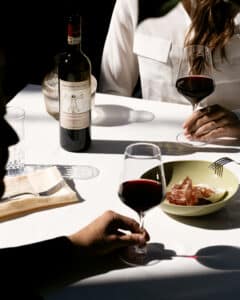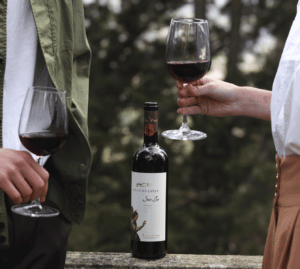“Wine, the divine liquor of grapes“: it is with these that Leonardo da Vinci referred to wine and grapes over five centuries ago.
Leonardo da Vinci is undoubtedly one of the greatest geniuses in the world. His fame as scientist, artist, sculptor and inventor is well known, but perhaps not everyone knows that Leonardo was also a passionate and expert wine connoisseur.
The evidence regarding Leonardo and his wine experience can be traced back to the period of his early childhood in the Tuscan countryside around the city of Vinci. His father, Piero, owned a plot of land partially planted with vines, and it is here, surrounded by nature, that Leonardo conducted his experiments in agronomy and viticulture, with a spirit of observation and investigation of all the natural processes that lead to grape ripening. His passion was such that his studies in the field of agronomics and oenology also led to the invention of grape processing tools and techniques.
The love for vine and wine always accompanied Leonardo da Vinci during the course of his famous artistic career.
By advocating “moderate consumption”, expense reports were found in which he recorded regular purchases of wine.
When Leonardo painted the famous “Last Supper” in Milan in 1499, the payment received was a vineyard, about 300 meters from the refectory of Santa Maria delle Grazie, donated by Ludovico Il Moro as a gesture of gratitude for “the various and admirable works from performed him”.
Other research and studies on wine can be found in the notebooks of the 1502 trip to Romagna, when Leonardo stayed at the court of Cesare Borgia known as “Il Valentino”. Here, the Genius drew bunches of drying grapes and wrote down a project for the first barrique to be used in winemaking.
In 1515, Leonardo da Vinci wrote a letter to his farmer at the Fiesole estate in which he complained about the wine received in Milan. From a simple tasting, he identifies the poor quality of the grapes harvested and the erroneous vinification methods as the reasons for the poor success of the wine.
“So, if you and the others accepted these arguments we would drink an excellent wine“: here with these Leonardo presents himself as a sensorialist, a true agronomist, as well as enologist and competent wine taster, providing a list of good practices and winemaking techniques aimed at obtaining a wine without defects.
It is from this passion of Leonardo for wine that Leonardo da Vinci wines are born: wines of which the Genius today would be proud.
